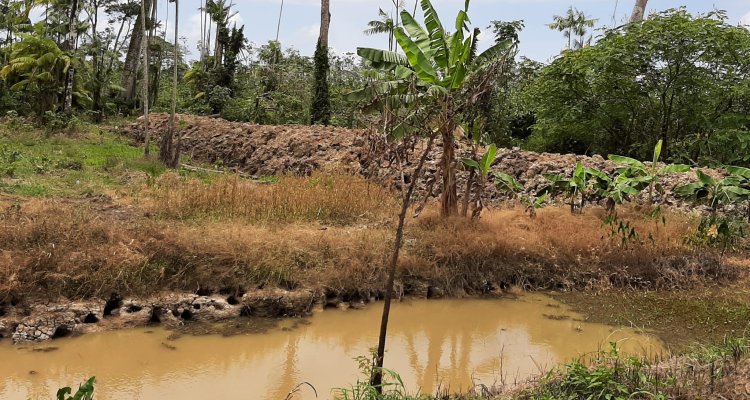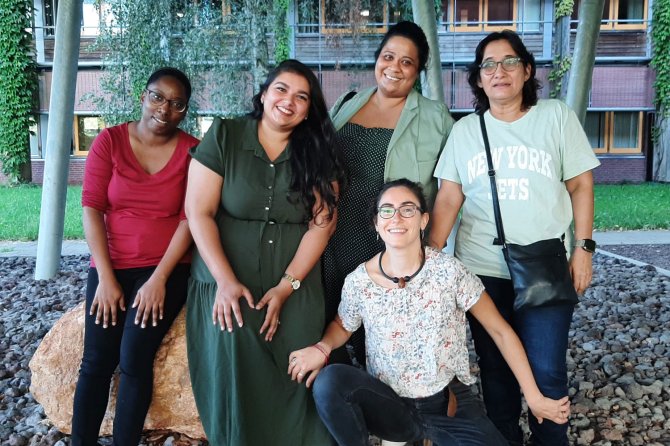
News
Surinamese-WUR collaboration to improve soil health in Suriname
Soil health is defined as the capacity of soils to perform different functions. It is assessed through the measurements of soil chemical, physical and biological soil health indicators linked to these functions and sensitive to perturbations. Healthy soils are capable of providing multiple functions. They form the basis for food security and provide protection against effects of climate change, such as salinization, extreme drought and flooding, which are threatening in particular smallholder farmers in countries of the Global South.
A scientific collaboration started in March 2023 between Suriname and Wageningen University & Research (WUR). It works together towards monitoring, maintaining and improving soil health in Suriname. This short project, which will end early 2024, provides ample opportunities for scientific exchange in the field of soil health between and within the two countries. It also paves the road to further collaboration.
Surinamese soil experts participate in "Soil Biology Lab Skills Training"
During the first week of September, four soil experts from Suriname participated in the "Soil Biology Lab Skills Training" given by WUR’s Soil Biology group. These experts represented four Surinamese laboratories belonging to different institutions, among which government (LVV, The Ministry of Agriculture, Livestock and Fishery), research institutes (CELOS, the Centre for Agricultural Research in Suriname) and educational centres (ADEK, Anton de Kom University and PTC, Polytechnic College of Suriname). The course focused on defining the role of soil biology in soil health. It also provided the participants with an overview of a range of methods related to soil functions, and detailed practical training in a subset of measures.

Why coming all the way from Suriname to WUR?
Earlier in April, three delegates from Wageningen University & Research (Giulia Bongiorno and Rachel Creamer from the Soil Biology group) and ISRIC (Stephan Mantel) visited Suriname to work with several Surinamese parties for solutions for healthier soils in Suriname. This visit was organised in the context of a short project funded by RVO running from March 2023 till the end of January 2024, coordinated by the Soil Biology group.
A goal of both this project and the collaboration is to strengthen the network in the field of soil health between stakeholders within Suriname and the two countries. One of the main outcomes of the WUR visit in Suriname was the evidence of an urgent need to measure and monitor soil health as affected by pedo-climatic characteristics and management practices. But to effectively measure soil health, it is important to know what can be measured where, and who can perform those analyses. Inviting the four Surinamese laboratories involved in soil health analyses and research to take part in the training was a concrete step towards improving soil health knowledge and assessment in the Suriname context.
Lessons learned and next steps: collaboration is key!
The training consisted of a combination of lectures and laboratory and field sessions assessing a range of measurement types. These varied from simple visual assessments in the field, to training in microscope identification techniques for nematodes and earthworms, and functional measures in the lab. "The training was very intensive, but definitely of added value for the Agricultural Production course at the Anton de Kom University in Suriname. It also was a great opportunity for cooperation between the different institutes of Suriname represented here," said Jane Jagernath, one of the participants.
The participation of the four Surinamese laboratories to the soil training not only increased their soil health knowledge, but also intensified the collaboration among the Surinamese institutes. This will help various stakeholders (including farmers, researchers and policy makers) to monitor status and changes in soil health, and in this way improve the sustainability of agricultural systems in Suriname. Collaboration is the key to success!